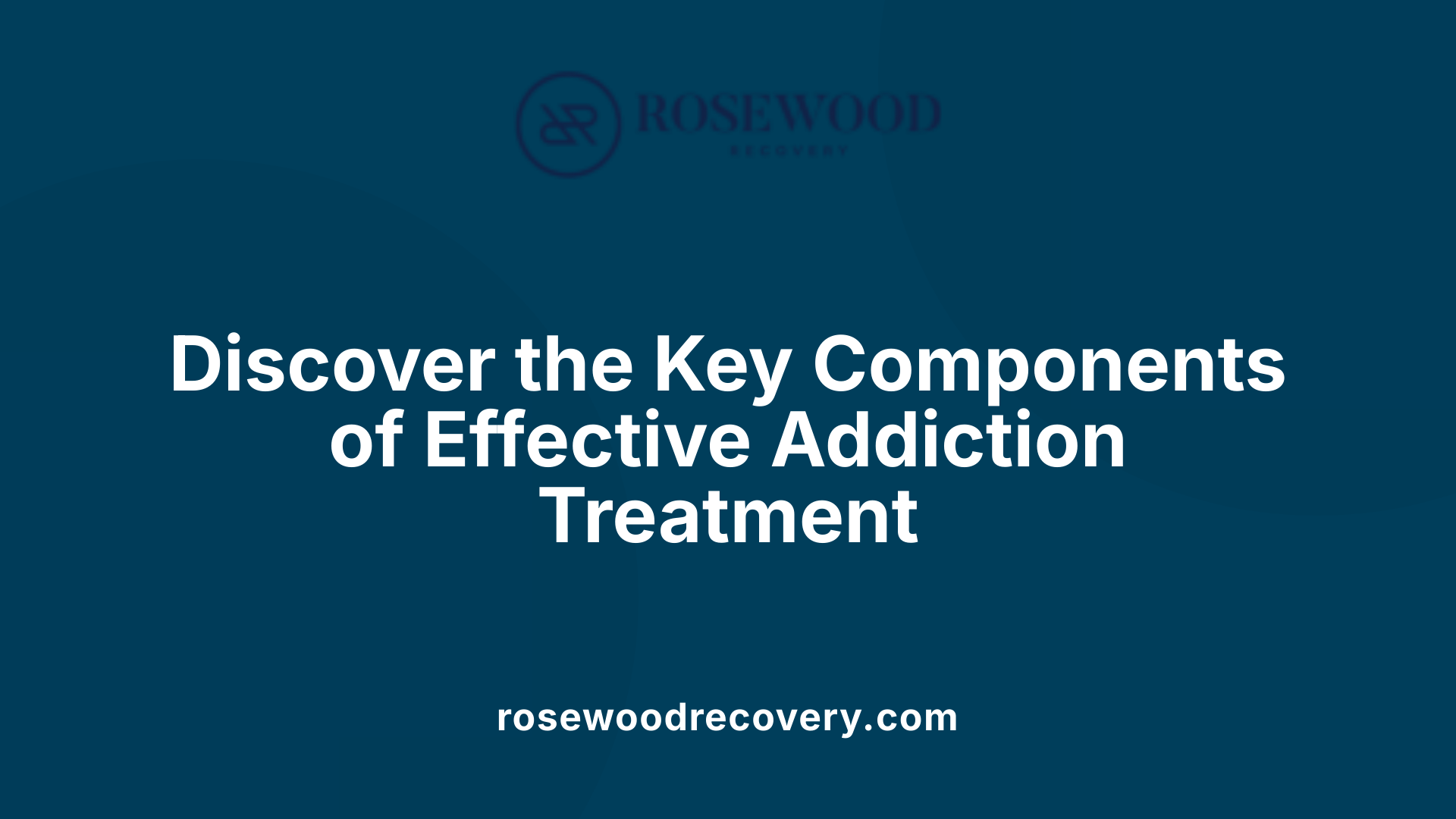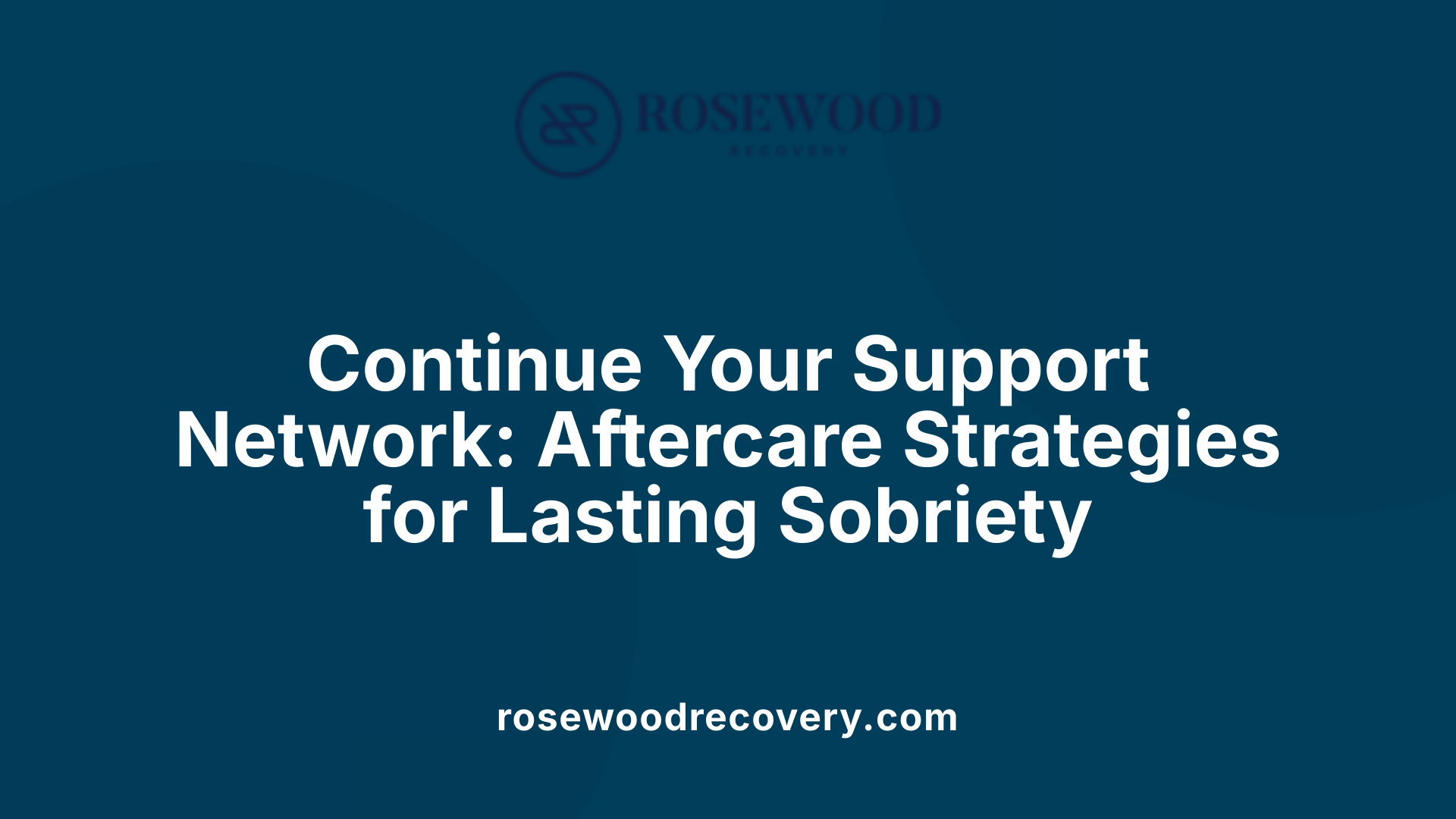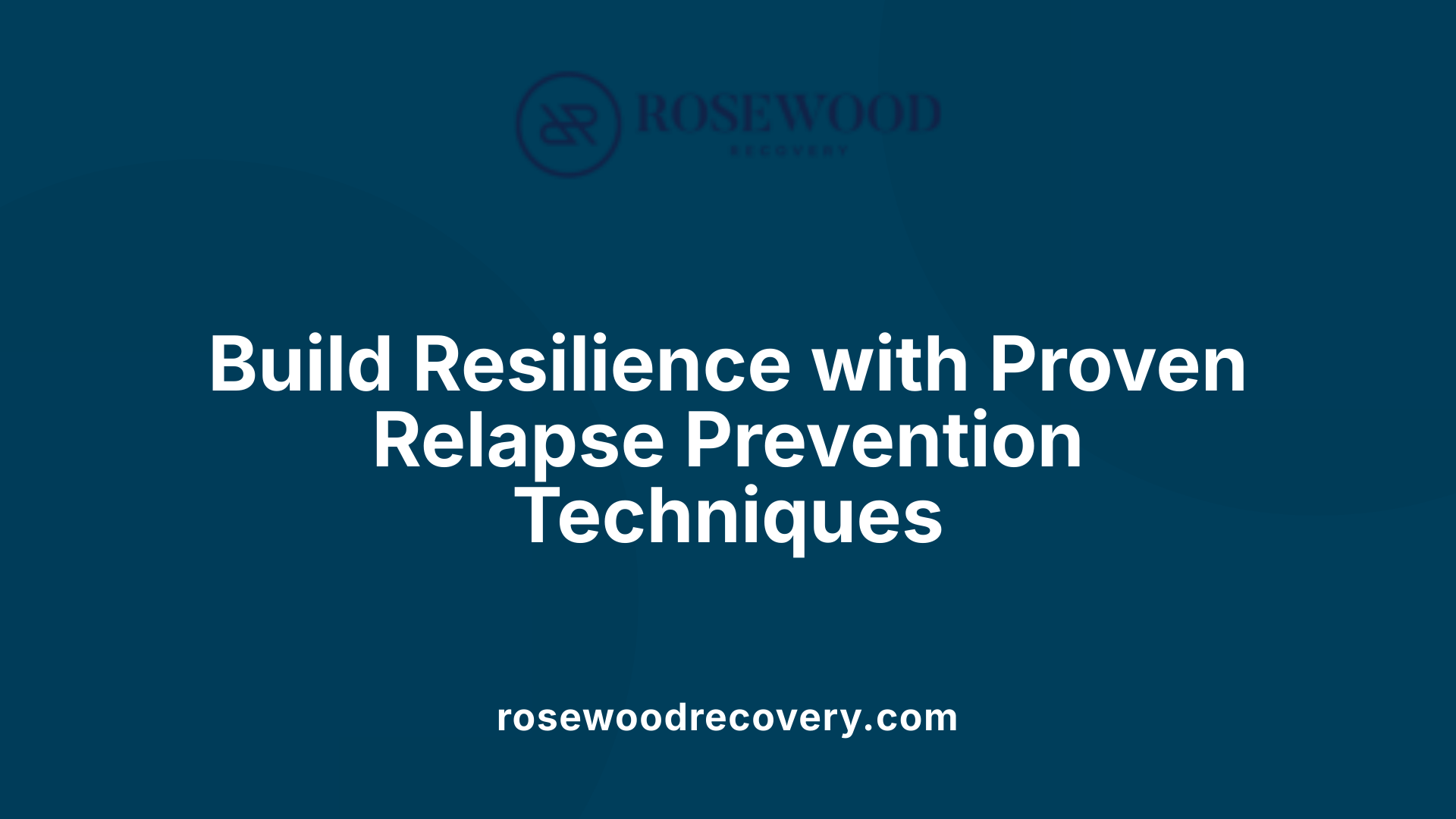Understanding the Role of Outpatient Care in Long-Term Emotional Stability
Outpatient care has emerged as a vital component in the treatment landscape for substance abuse and co-occurring mental health disorders. By allowing individuals to maintain their daily lives while receiving structured therapy and support, outpatient programs promote emotional stability and sustained recovery. This article explores how comprehensive outpatient services, including intensive outpatient programs, personalized therapies, and continuing care, contribute to long-term emotional well-being and sobriety.
Comprehensive Treatment Services: A Multifaceted Approach to Addiction Recovery

What are the key components of comprehensive treatment services for substance abuse?
Comprehensive treatment for substance abuse integrates multiple interventions to tackle the complexity of addiction. This begins with an initial assessment and diagnosis to understand the severity of substance use and identify any co-occurring mental health conditions. A personalized treatment plan is then created based on this evaluation.
Detoxification may be required for those experiencing withdrawal symptoms, providing medical supervision to ensure safety during the initial phase of recovery.
Therapeutic interventions involve various behavioral therapies such as cognitive-behavioral therapy (CBT), motivational interviewing, and dialectical behavior therapy (DBT). These therapies help individuals develop coping mechanisms, understand triggers, and improve emotional regulation.
Medication management plays an important role, especially with medication-assisted treatment (MAT) for opioid and alcohol use disorders. Medications reduce cravings and withdrawal effects, supporting sustained abstinence.
Long-term ongoing support and relapse prevention are core components. Services include continued counseling, peer support groups, family therapy, and aftercare programs. These resources foster resilience, help manage cravings, and maintain motivation.
This multifaceted approach ensures that physical health, mental well-being, behavioral change, and social support are all addressed, promoting a more effective and sustained recovery journey.
Integrated Care for Co-Occurring Mental Health and Substance Use Disorders
How do comprehensive treatment programs address co-occurring mental health issues and addiction?
Comprehensive treatment programs address co-occurring mental health and substance use disorders by delivering integrated and simultaneous care that targets both areas together. This integrated approach includes coordinated behavioral therapies such as cognitive-behavioral therapy (CBT), motivational enhancement therapy, and specialized group sessions designed for dual diagnosis patients. These behavioral therapies help individuals manage symptoms of mental illness while also tackling substance use challenges.
Medication management is another essential component, ensuring appropriate pharmacological treatments are provided and monitored to address both mental health conditions and addiction safely. Early and regular screening with validated tools like AUDIT (Alcohol Use Disorders Identification Test) and PHQ-9 (Patient Health Questionnaire) facilitates timely identification of co-occurring disorders, which enables personalized treatment plans adapting to evolving patient needs.
One promising initiative improving integrated care delivery is the Project ECHO model, which uses telehealth to educate and support healthcare providers in various settings. This model expands access to expert guidance and evidence-based practices, helping overcome barriers common in fragmented care systems.
Overall, integrated dual diagnosis treatment programs have demonstrated improved outcomes, including reduced substance use, better management of psychiatric symptoms, and enhanced stability in social and occupational functioning, promoting long-term recovery and well-being.
Therapeutic Modalities in Outpatient Addiction and Mental Health Care

What types of therapies are commonly used in treating addiction and mental health disorders?
Outpatient addiction and mental health treatment programs employ several evidence-based therapies tailored to individual needs. Cognitive-Behavioral Therapy (CBT) helps individuals recognize and change harmful thought patterns and behaviors related to substance use and mental health issues. Dialectical Behavior Therapy (DBT) focuses on emotional regulation and interpersonal effectiveness, which is especially helpful for co-occurring disorders.
Motivational Interviewing supports patients by strengthening their motivation and commitment to change, fostering engagement in recovery.
Family and Group Therapy
Family therapy is a critical modality, involving loved ones to improve communication, build support systems, and address dynamics that impact recovery. Group therapy provides a shared environment where patients can exchange experiences, develop social skills, and reduce isolation.
Medication-Assisted Treatment (MAT)
MAT combines FDA-approved medications such as methadone, naltrexone, and acamprosate with therapy. This approach helps manage withdrawal symptoms, reduce cravings, and prevent relapse while supporting behavioral changes.
Experiential Therapies
Programs may also include experiential therapies like art, music, or animal-assisted therapies, which offer alternative ways to express emotions, reduce stress, and promote healing beyond traditional talk therapy.
Role of Support Groups
Peer-led support groups such as Alcoholics Anonymous (AA) or Narcotics Anonymous (NA) are vital to sustaining long-term recovery. These groups provide community, accountability, and encouragement outside formal treatment settings.
Combining these therapeutic modalities creates a comprehensive, multidisciplinary outpatient approach that addresses both addiction and co-occurring mental health challenges, enhancing recovery outcomes and supporting sustained sobriety.
The Importance of Aftercare in Sustaining Recovery and Emotional Stability

Why is aftercare important in substance abuse and mental health treatment?
Aftercare plays a vital role in helping individuals maintain their recovery and avoid relapse after completing initial treatment. It provides continuous support through therapy, medication management, environmental changes, and connections to support groups.
How does therapy and medication management contribute to aftercare?
Ongoing therapy addresses psychological and emotional challenges that may arise post-treatment, helping to process lingering issues and reinforce coping strategies. Medication management supports stabilization, especially in cases involving co-occurring mental health conditions, by ensuring effective use and adjustment of pharmacological treatments.
What role do environmental modifications and support groups have?
Creating a supportive, stable living environment reduces triggers and stressors that can lead to relapse. Participation in peer support networks and group therapy fosters a sense of community and accountability, offering motivation and shared experience that strengthens emotional stability.
Why are personalized aftercare plans important?
Tailored aftercare plans developed with healthcare providers ensure that an individual's unique needs and challenges are addressed. These plans guide ongoing care, including therapy schedules, medication adjustments, and support group involvement, promoting sustained progress.
How does aftercare sustain long-term recovery?
By reinforcing healthy habits, providing tools for relapse prevention, and offering continuous emotional and social support, aftercare helps individuals build resilience and maintain sobriety. It addresses both substance use and underlying mental health conditions, creating a foundation for lasting recovery and balanced emotional well-being.
Flexibility and Real-World Application: Advantages of Outpatient Programs
Living at Home During Treatment
Outpatient programs allow individuals to receive effective addiction treatment while continuing to live at home. This setting supports the maintenance of daily routines and leverages existing social support from family and friends, which enhances emotional stability and recovery outcomes.
Maintaining Work, Education, and Family Responsibilities
One major advantage of outpatient care is its flexibility in scheduling. Patients can attend therapy sessions without disrupting work, school, or family obligations. This continuity promotes stability and minimizes life interruptions, making recovery more manageable alongside daily demands.
Applying Coping Skills in Daily Life
Outpatient treatment emphasizes practicing coping strategies in real-world contexts. Patients have the opportunity to directly apply skills learned in therapy to challenges like workplace stress, social triggers, and family interactions. This practical experience builds resilience and prepares individuals for long-term sobriety.
Building Self-Efficacy and Confidence
Through continuous exposure to everyday environments while receiving support, individuals develop greater self-efficacy. Successfully managing life’s stresses during treatment fosters confidence, empowering patients to sustain recovery independently once formal treatment ends.
Cost-Effectiveness Compared to Inpatient Care
Outpatient programs generally cost less than inpatient or residential treatment by eliminating expenses such as lodging and 24/7 medical supervision. This affordability broadens access to care, enabling more people to enter and benefit from addiction treatment.
Together, these advantages make outpatient treatment a valuable and practical option for individuals seeking to overcome substance use disorders while maintaining engagement with their regular lives.
Intensive Outpatient and Partial Hospitalization Programs: Building Structure Without Residential Care
What are Intensive Outpatient Programs (IOPs) and Partial Hospitalization Programs (PHPs)?
Intensive Outpatient Programs (IOPs) and Partial Hospitalization Programs (PHPs) provide structured addiction treatment without requiring overnight stays. IOPs generally involve at least 9 hours of therapy per week, combining individual, group, and family sessions. PHPs offer a more intensive schedule, akin to a full-day program, providing greater support while still allowing patients to live at home.
What types of therapy are included?
Both IOPs and PHPs incorporate multiple therapy formats:
- Individual therapy: Tailored to personal recovery goals and challenges.
- Group therapy: Builds community and peer support.
- Family therapy: Encourages emotional support and educates loved ones on addiction.
- Psychoeducation: Helps patients understand triggers and relapse prevention.
How long do these programs last and how are they scheduled?
Programs typically last at least 90 days to correlate with better recovery outcomes. IOPs offer flexible scheduling to accommodate work, education, and family life, usually involving several weekly sessions totaling a minimum of 9 hours. PHPs require more intensive daily involvement but still allow patients to live at home.
How do they compare in effectiveness to inpatient care?
Research shows that IOPs and PHPs can be as effective as inpatient treatment for individuals with mild to moderate substance use disorders. They deliver comparable decreases in substance use and improved abstinence rates, benefiting from the ability to practice skills in real-life settings.
What are the benefits of family involvement in these outpatient programs?
Family engagement enhances emotional support, helps loved ones understand the nature of addiction, and strengthens recovery stability. Family sessions can improve communication and create a supportive environment that benefits long-term sobriety.
Together, IOPs and PHPs offer comprehensive, flexible care that balances structure and independence, supporting sustained recovery while allowing individuals to maintain everyday responsibilities.
Relapse Prevention Strategies Integral to Outpatient Care Programs

How do outpatient programs help individuals identify triggers?
Outpatient care actively guides individuals in recognizing the people, places, emotions, or situations that may prompt substance use. This awareness forms the foundation for avoiding or effectively managing these triggers.
What coping skills are taught in outpatient programs?
Programs focus on building practical skills such as stress management, emotional regulation, and problem-solving. These tools enable patients to handle cravings and high-risk circumstances without resorting to substance use.
How does family involvement enhance relapse prevention?
Including family members in therapy sessions helps create a supportive environment. It educates loved ones about addiction, improves communication, and strengthens emotional support networks essential for sustaining sobriety.
What role do ongoing check-ins and monitoring play?
Regular outpatient appointments and follow-ups help clinicians assess progress and adjust treatment as needed. Continuous monitoring fosters accountability and early identification of potential relapse signs.
How are peer support and community resources integrated?
Outpatient care connects individuals with peer groups and community-based resources that provide encouragement, shared experiences, and additional motivation to maintain recovery.
Together, these relapse prevention strategies create a comprehensive and personalized framework within outpatient programs. This structure equips individuals to maintain long-term recovery while living at home and engaging with their daily routines.
Long-Term Treatment and Emotional Resilience: Promoting Recovery Beyond Immediate Sobriety

What does extended outpatient treatment involve?
Extended outpatient treatment programs typically last six months or longer and provide continuous, comprehensive care designed to support long-term recovery. These programs include a variety of services such as individual therapy, group counseling, family therapy, medication-assisted treatment, and psychoeducation. The longer duration allows individuals to address not only substance use but also underlying mental health issues, creating a solid foundation for sustained sobriety.
How are trauma, depression, and anxiety addressed?
Many individuals with substance use disorders also struggle with co-occurring mental health conditions like trauma, depression, and anxiety. Extended outpatient treatment integrates counseling and psychotherapy tailored to these issues, employing techniques such as cognitive-behavioral therapy (CBT) and dialectical behavior therapy (DBT). This dual focus helps improve overall well-being and reduces the likelihood of relapse.
How does therapy build emotional resilience?
Therapy sessions during long-term outpatient treatment foster emotional resilience by helping individuals process difficult emotions and develop healthy coping strategies. Both individual and group therapy environments promote emotional growth; the group setting offers peer support and shared experiences that encourage self-awareness and stress management, while individual counseling provides personalized strategies for handling triggers and cravings.
Why are social skills and community connection important?
Extended outpatient programs emphasize social skill development essential for rebuilding relationships that substance use may have damaged. Through group therapy and peer support networks, participants learn communication, conflict resolution, and empathy. These connections reduce isolation, foster a sense of belonging, and create valuable support systems that are critical for preventing relapse.
How does personal growth and life skills development support recovery?
Long-term treatment nurtures personal growth by encouraging individuals to explore new interests, improve self-esteem, and set meaningful goals. Life skills such as stress management, time organization, and relationship building are taught to help participants reintegrate into society successfully. Supportive activities like nutritional counseling, fitness, and holistic therapies complement this growth, contributing to a healthier, purpose-driven life.
This comprehensive approach not only tackles the immediate challenges of addiction but also empowers individuals to build resilience and lead fulfilling lives well beyond the treatment period.
Sustaining Stability Through Comprehensive Outpatient Care
Outpatient care programs for substance abuse and co-occurring mental health disorders provide a flexible, effective pathway to long-term emotional stability. By integrating comprehensive assessments, personalized therapies, medication management, and robust aftercare, these programs support individuals in managing daily responsibilities while building essential coping skills. The evidence-backed success of outpatient treatments—ranging from intensive outpatient programs to long-term recovery models—demonstrates that maintaining connections with family, community, and professional support systems reduces relapse risks and fosters sustained well-being. Ultimately, outpatient care’s holistic approach empowers individuals to reclaim their lives with confidence, resilience, and lasting recovery.
References
- Substance Abuse Intensive Outpatient Programs
- The Benefits of Outpatient Substance Abuse Treatment
- Impact of Continuing Care on Recovery From Substance ...
- The Role of Outpatient Treatment in Addiction Recovery
- Seven Benefits of Outpatient Treatment for Opioid Addiction
- Benefits of Outpatient Treatment for Teens
- 5 Benefits Of Long-Term Addiction Treatment
- Flexible Outpatient Care for Addiction Recovery
- How Outpatient Substance Use Treatment Can Help
- The Importance Of Aftercare In Recovery




